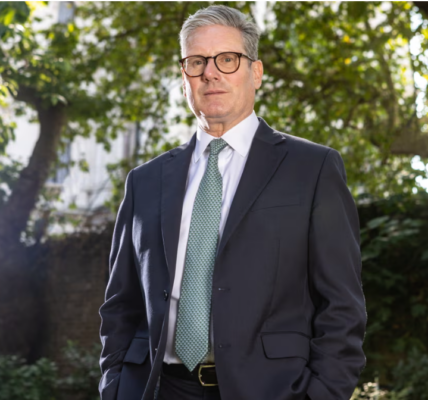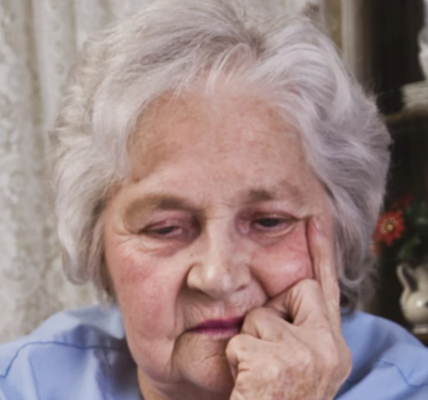MPs have warned the Government should consider the “potential threat” posed to the UK by a Syrian rebel group

Sir Keir Starmer while he meets Chancellor Olaf Scholz. (Image: Getty)
It is “far too early” to consider removing the Islamist rebels who overthrew Bashar al-Assad in Syria from the terror list, Sir Keir Starmer has said.
A senior Cabinet minister suggested the Government will review Hayat Tahrir al-Sham’s status earlier on Monday.
But the Prime Minister said “no decision is pending”.
Ministers are understood to monitor whether the rebel group’s rhetoric matches their actions. Sir Keir said: “No decision is pending at all on this, it is far too early.
“At the moment the focus has to be on talking to our allies, making sure that this is an opportunity for Syria and therefore we have to work to make sure that this is a peaceful opportunity.”
The Home Office has previously declared that Hay’at Tahrir al-Sham – led by Abu Mohammed al-Jolani “should be treated as an alternative name” to Al-Qaeda.
Shadow foreign secretary Dame Priti Patel said the Government should consider the “potential threat” posed to the UK by the Syrian rebel group Hayat Tahrir al-Sham (HTS),
She said: “Can [Foreign Secretary David Lammy] also comment on the risk to our security from foreign terrorist fighters being freed from prisons, and can he give his assessment of the risk of the state’s weapons, including potential chemical weapons, falling into the control of those who would cause us harm and threaten our security?”
She added: “Can he give assurances that the Government with its partners will be considering the potential threat that HTS poses immediately, both for Syria and the region, as well as our own interests?
“Security considerations should always be a number one consideration for us all, and we should not forget where this group originally came from. We need to be looking not just at their words, but at their actions.
“And for years, the Assad regime has been bailed out by the Russians, the Iranians and Hezbollah, but with Russia now focused on its illegal invasion in Ukraine, and with Iran’s presence in the region now depleted, can the Foreign Secretary give the Government’s assessment of how this change in Syria will affect the dynamics of the current situation in the time ahead and what is the strategy for dealing with Iran, who still want a foothold in Syria to exploit and funnel the misery that we have seen for too long?”
Cabinet Office minister Pat McFadden had suggested on Monday morning the Government will re-examine the classification after the rebels overthrew al-Assad’s regime.
No decisions have been made “over the weekend”, Mr McFadden said, adding: “I think it should be a relatively swift decision, so it’s something that will have to be considered quite quickly, given the speed of the situation on the ground.”
McFadden, a close ally of Prime Minister Sir Keir Starmer, said al-Jolani’s rhetoric had given some cause for optimism.
The opposition fighters who overthrew al-Assad announced an amnesty for all army conscripts and vowed to protect minority ethnic and religious groups after his forces captured Aleppo last week.
He added: “He is saying some of the right things about the protection of minorities, about respecting people’s rights so we will look at that in the days to come.”
Jolani, whose real name is Ahmed al-Sharaa, was once a member of al-Qaeda, but he and HTS split with the international terrorist group in 2016.
Jolani has said he had abandoned al-Qaeda’s goals of global jihad and was now only focused on ousting Assad and delivering Islamic governance in Syria.
He told US broadcaster PBS in 2021: “Our involvement with al-Qaeda in the past was an era, and it ended.
“And even at that time when we were with al-Qaeda, we were against external attacks, and it’s completely against our policies to carry out external operations from Syria to target European or American people. This was not part of our calculations at all, and we did not do it at all.”
He had previously branded the designation of HTS as a terrorist group as “unfair” and “political”.
When asked on Sky News whether the Government will have to look again at the classification, Mr McFadden said: “Yeah, we will. We’ll consider that. I think it will partly depend on how that group behaves now.”
He said he thought other countries worldwide, such as the US, may also take a look, but that “we’ve not made any decisions on that over the weekend”.
The rapid collapse of the Assad regime after 13 years of civil war saw a coalition of rebel groups seize Damascus on Sunday, with the former president fleeing to Russia, one of his main allies.
Mr Assad’s British wife, Asma, is believed to be with him in Moscow.
The Home Office said: “HTS’s relationship with AQ has changed, with a splintering between the two organisations.
“The situation on the ground in Syria is very fluid. The priority must be the safety of Syrian civilians and securing a political solution to the unfolding events.
“The Government does not routinely comment on whether a group is being considered for proscription or de-proscription.”



